Racism in football: FA 'has to be proactive and modernise'
The FA "has to modernise itself" to be "fit for purpose for the 21st century," says the chairman of its inclusion advisory board.
Paul Elliott says the organisation was "reactive" in the past when it came to dealing with racism complaints, but will now be "proactive".
"It can get better," he tells Radio 1 Newsbeat. "We are improving - it's important to recognise it."
He adds there's "a genuine focus" to tackle racism at grassroots level too.
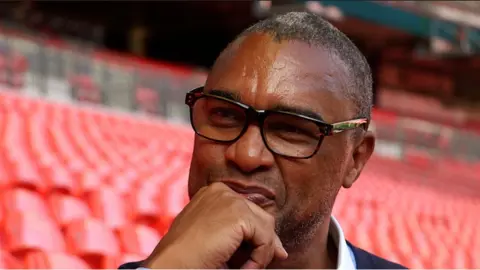
The number of racist incidents reported to anti-discrimination charity Kick It Out rose from 192 to 274 last season.
The FA's been criticised in the past for the way it's handled racism allegations at the grassroots level of the game.
But Paul Elliott says the organisation is "taking greater responsibility" and trying to make the reporting process easier.
"I feel there's a genuine focus within the organisation, and investment, to make that process far more smoother, far more effective, and far more efficient.
"From the reporting protocols right the way through the whole process - the time it takes, the evidence. And also support for the victims too."
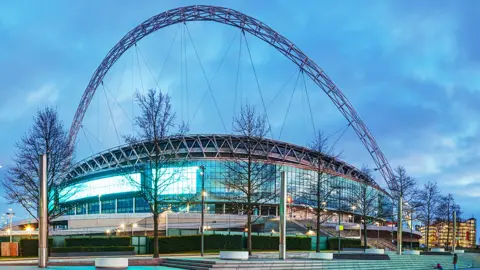 Getty Images
Getty ImagesPaul Elliott says the organisation wants to use Wembley Stadium as a "gold standard" in the game.
"So we're talking about more effective, efficient stewarding, greater visibility for the police, signage," he says.
He also says the FA can use facial recognition to help identify perpetrators in the stadium.
"You're sending a message to spectators by saying 'hey, we have got an attitude of zero tolerance'."
'Force them to like you'
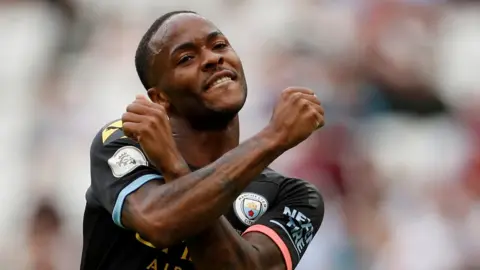 Reuters
ReutersRadio 1 Newsbeat spoke to current and former players from up and down the football pyramid about their experiences with racism in the game.
Peterborough Utd striker Ivan Toney, who sometimes gets racist abuse online, says punishments to perpetrators need to be stronger.
Amateur players in Leicestershire were unhappy with the way racism complaints were handled by the FA at grassroots levels.
And Eni Aluko, who the FA apologised to for racially discriminatory comments made by then England Women boss Mark Sampson, says racism should be treated in the same way as corruption in football.
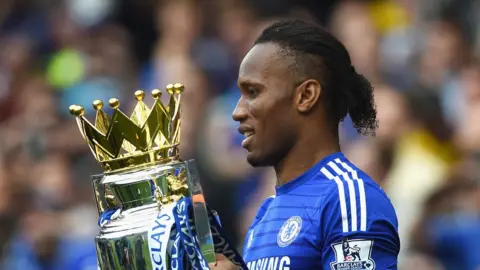 Getty Images
Getty ImagesBut there are two legends of the Premier League who have ideas too.
Didier Drogba, who scored over 150 goals for Chelsea, tells Newsbeat: "I experienced it, but it's not everyone in the stadium.
"You take 60,000 people out of millions and for sure you're going to see a lot of differences.
"Really I believe, the best way to fight it is to be good, is to be the greatest, to be the best - so to force them to like you."
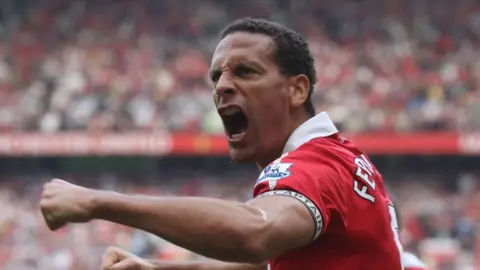 Getty Images
Getty ImagesSix-time Premier League winner Rio Ferdinand believes more education around the subject will lead to a gradual change.
"If the education is there from a young age for people to be educated the right way, I believe that in time problems will become less and less," he says.
"A lot of the problems are from a society. It begins in society, outside of football."
'Actions haven't been good enough'
Some grassroots players and coaches say they don't bother reporting the incidents any more because they don't think anything will be done.
"It's come to a stage where we know that regardless of how many complaints that we log to the FA of situations that have occurred, nothing's actually being done. It's just been let slide," says Faizaldo, who plays for Community Football Academy (CFA) in Leicestershire.
"Actions are louder than words, now... unfortunately, we haven't seen any actions in place at this present moment in time."



"There are isolated instances where it [racism] does happen," says Amir, who coaches children as part of CFA.
"But then the action on that - from what we've seen - hasn't been as good as we would anticipate it to be."
Another CFA coach at grassroots level, Asif, says that he doesn't have faith in the system.
"Stop it at the top, and we'll slowly stop it at the bottom. That's the way I see it," he says.
'The punishment needs to be a lot harder'
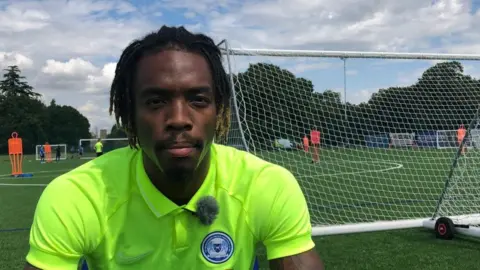
Higher up in the football pyramid, the English Football League saw four incidents of alleged racist abuse in its opening weekend.
While Premier League players get a lot of publicity when they speak out about racism, players in other leagues don't get the same sort of coverage.
"It's not the greatest, it's horrible. It does frustrate me," says Peterborough United striker Ivan Toney, about the racist abuse he's got online in the past.
In one incident in May after he scored the winner against Portsmouth, he got sent monkey and banana emojis online.
Allow X content?

"The punishment needs to be a lot harder," he tells Newsbeat. "Missing a few games - is that really strong enough? I don't think so."
He would prefer to see lifetime bans, "and people seeing that and thinking 'right, that's going to happen if I do that, so I can't be doing that.'"
He adds that these incidents are sometimes discussed among his teammates.
"Obviously the squad are thinking, 'what's this for, what's going on here, are you alright?'"
In a statement, Portsmouth apologised to him and said: "There is no place in football - or indeed society - for racism and it will not be tolerated at Portsmouth Football Club."
The case was also reported to the police and an investigation is ongoing.
'Treat it like corruption'
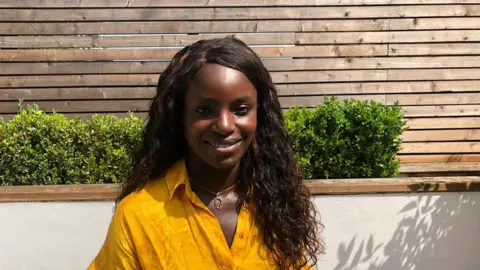
"This needs to be as big as financial fair play, or other things on the agenda like corruption in sport," Juventus forward Eni Aluko tells Newsbeat.
"It fundamentally brings into disrepute the integrity of the sport, which is what we all love and do."
Aluko, who has 102 caps for the Lionesses but hasn't played international football since 2016, was involved in a high-profile racism case with the FA in 2017.
The FA apologised to her and teammate Drew Spence for racially discriminatory comments made by then-England boss Mark Sampson.
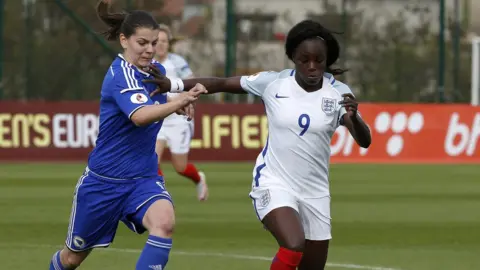 Getty Images
Getty Images"I know what I've been through and it wasn't a nice experience at all actually," says Aluko.
"But I would like to think that it's a lesson for everybody to say that if that happens again, we need to deal with it differently."
She adds: "I think racism in sport is a bigger conversation than just the individual.
"I think it's about diversity in boardrooms, diversity in the media, how the media writes about players of colour which then plays into a lot of the stereotypes that people have on the terraces."
'We're trying to make sure our communication is better'
One of the first things players and fans at all levels are told to do if they encounter racism or abuse is to report it.
Kick It Out, the anti-discrimination charity, is one of the channels you can use to do that, through their app or website.
There were 109 reports of discrimination (not just racism) at grassroots level last season - and 40% of those were in under-18 matches.
But Kick It Out's CEO Roisin Wood tells Newsbeat: "I don't think our grassroots statistics reflect at all what's going on."
She adds: "I just think we don't have an impact at grassroots football and we have to get better at that - I'm talking as us as Kick It Out as well as all football bodies."
Roisin says Kick It Out is "trying to make sure our communication is better between [the FA] and us and between us and the victim."
She adds: "We just need more resources to make sure people, even if the outcome doesn't go the way they wanted it to go, they feel confident in the process."
Kick It Out gets a total of about £800,000 a year in funding from the FA, Premier League, Football League and Professional Footballers' Association.
With a lot of pressure on football's authorities this season to make sure there isn't a repeat of last season's incidents, it remains to be seen how much of an effect footballing bodies' promises will have.
Reporting by Nesta McGregor, Ben Mundy, Imran Rahman-Jones and Eleanor Roper.

